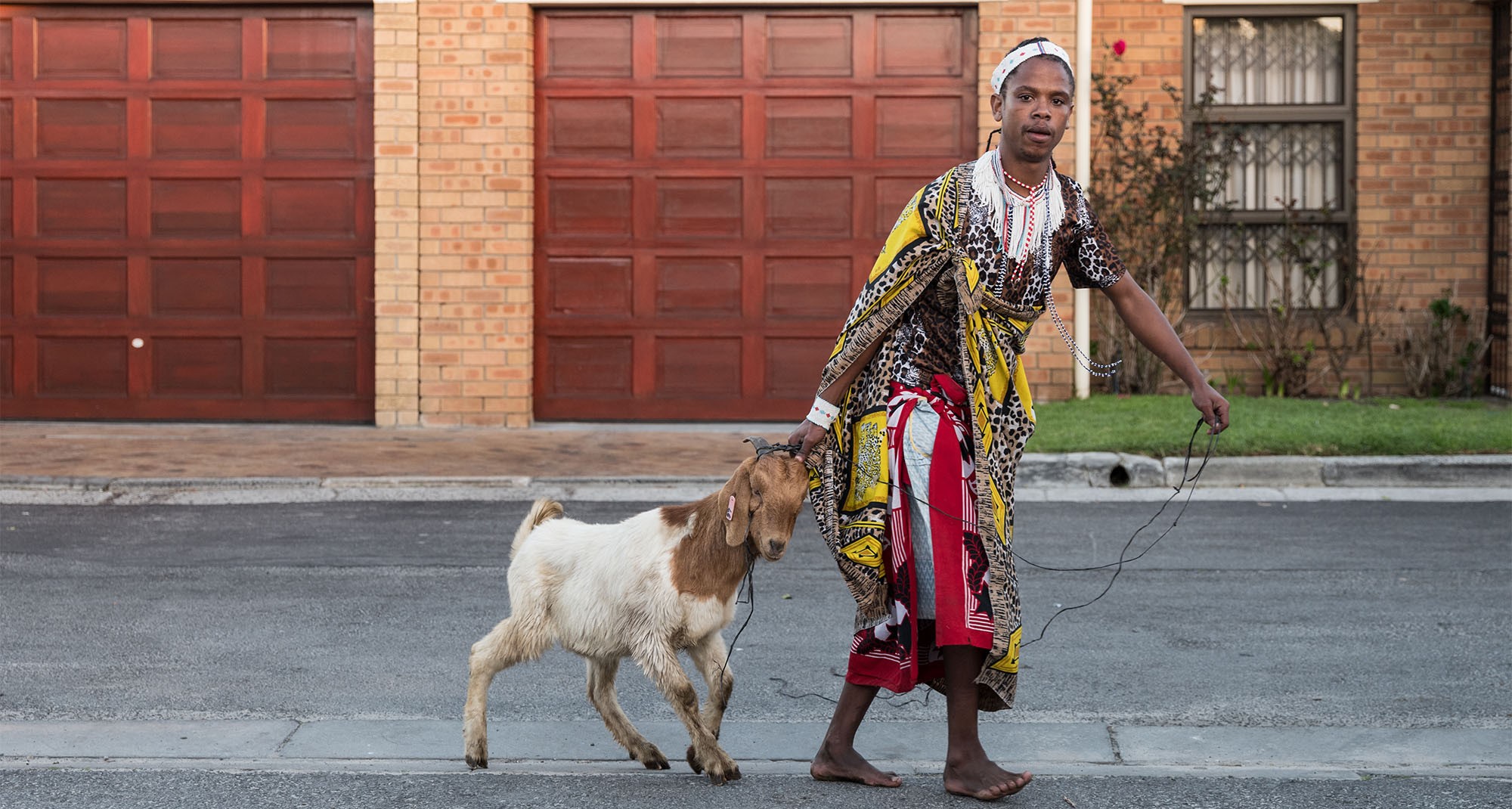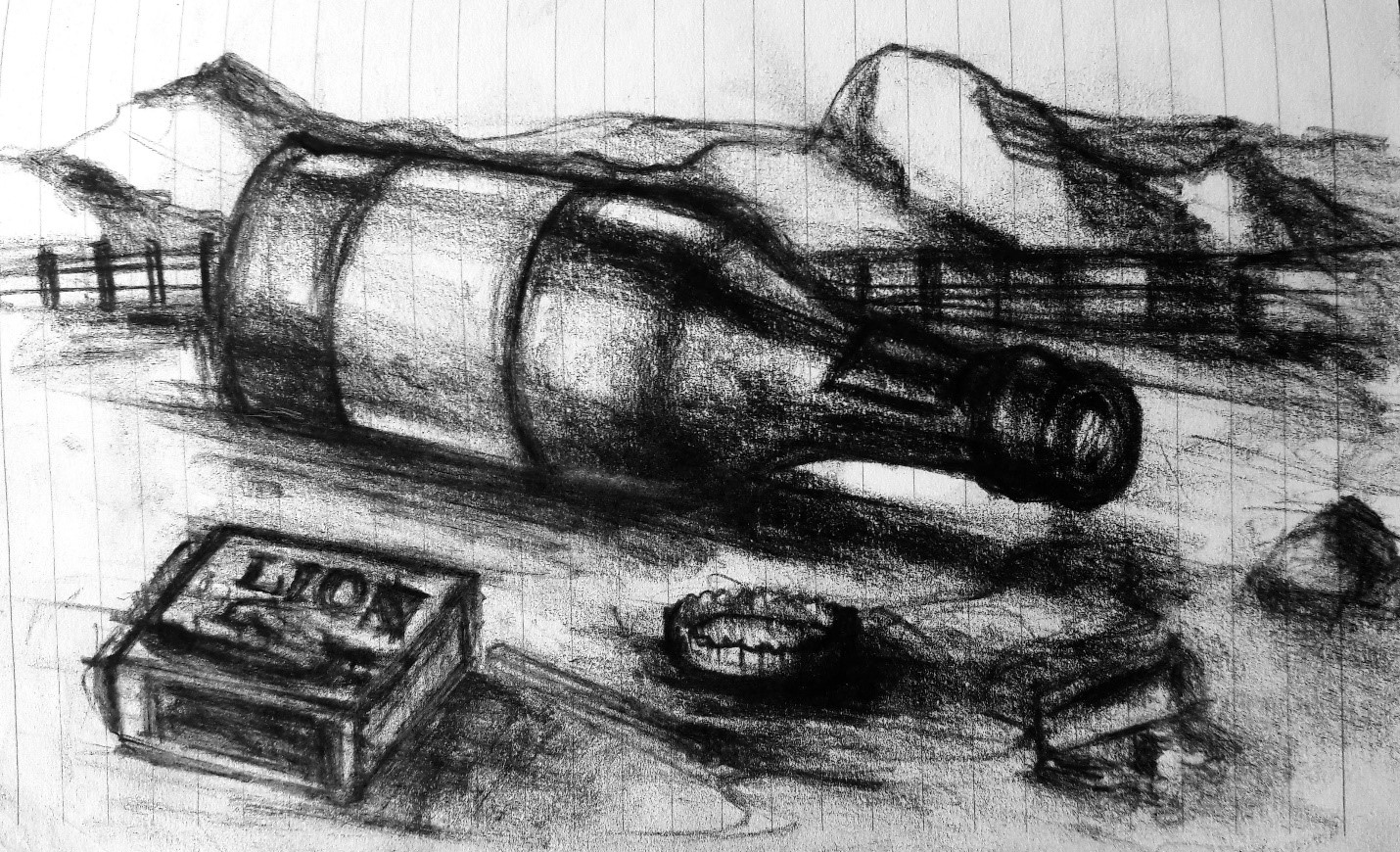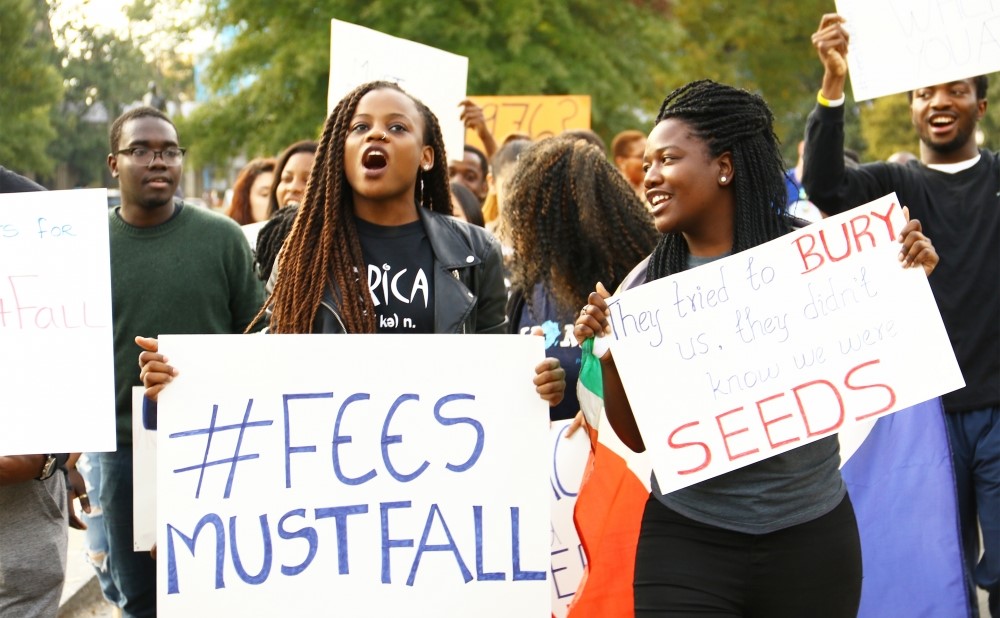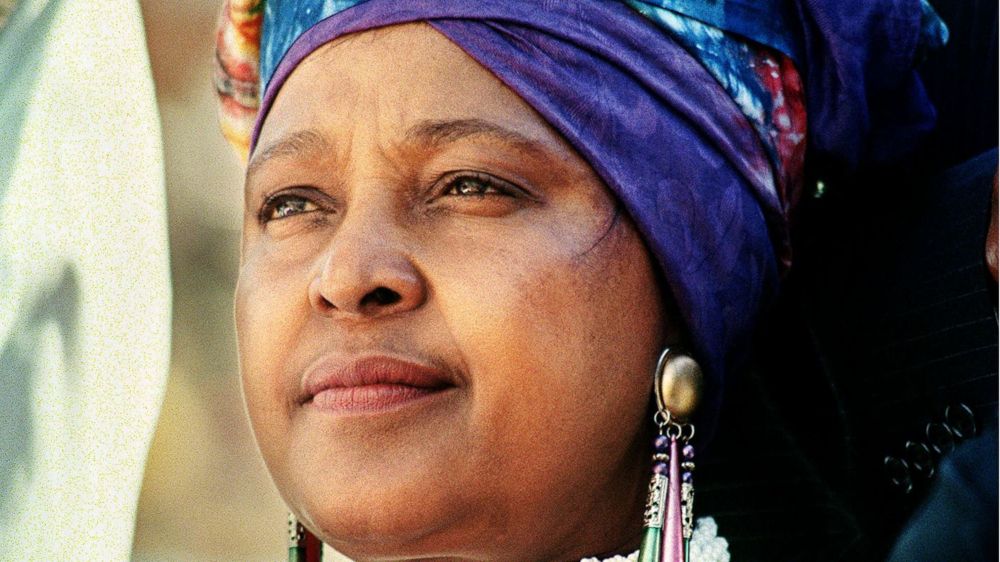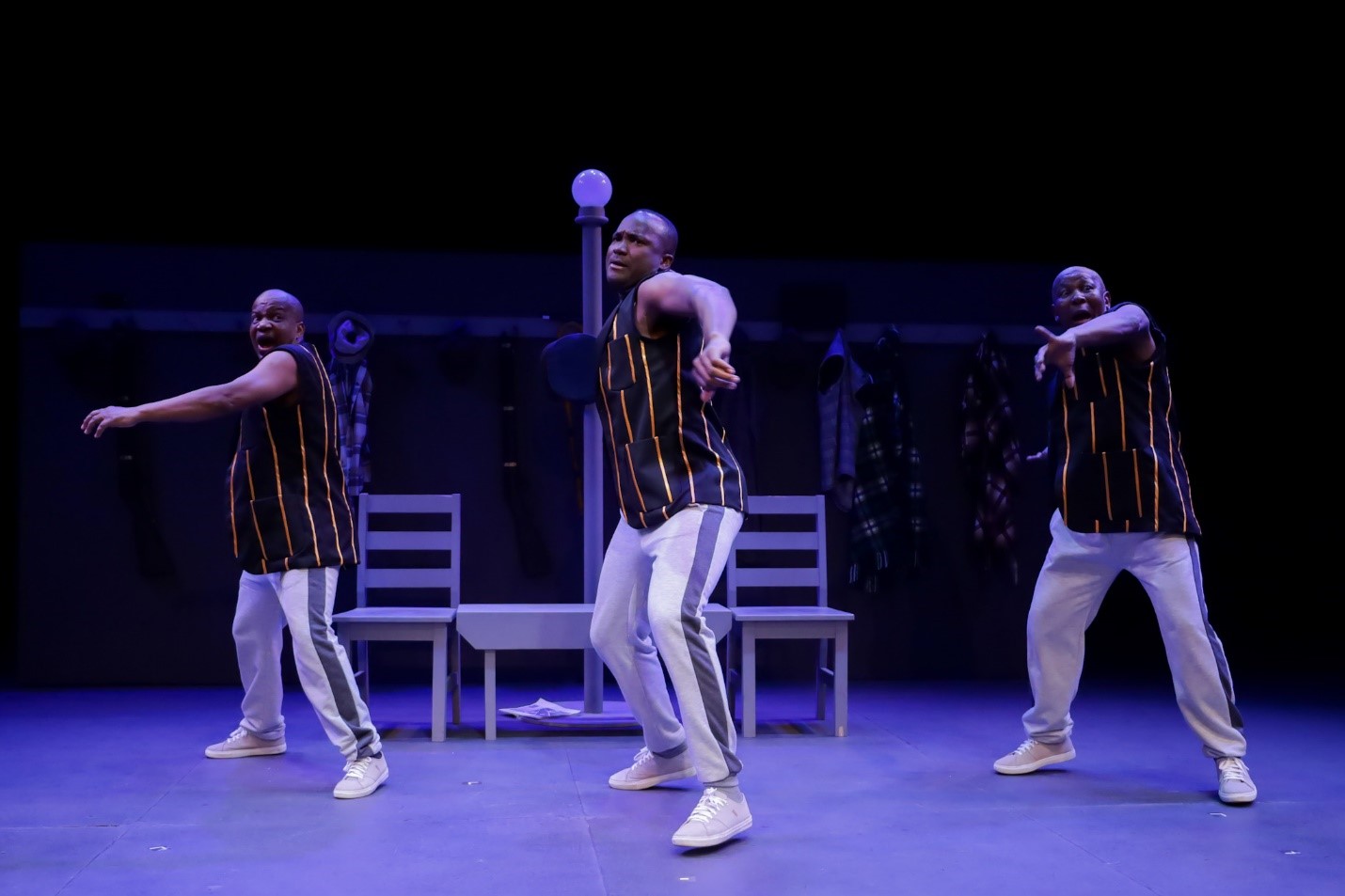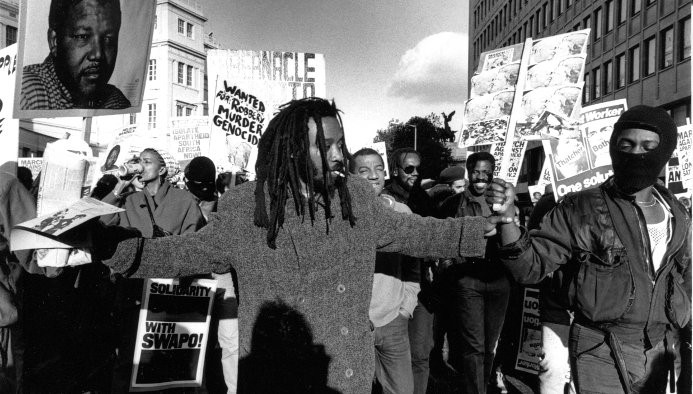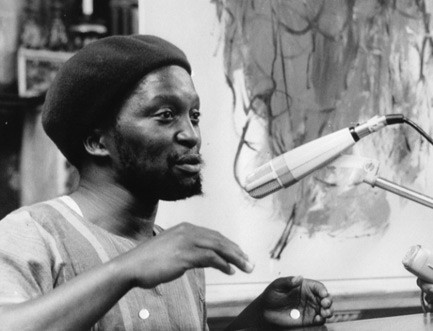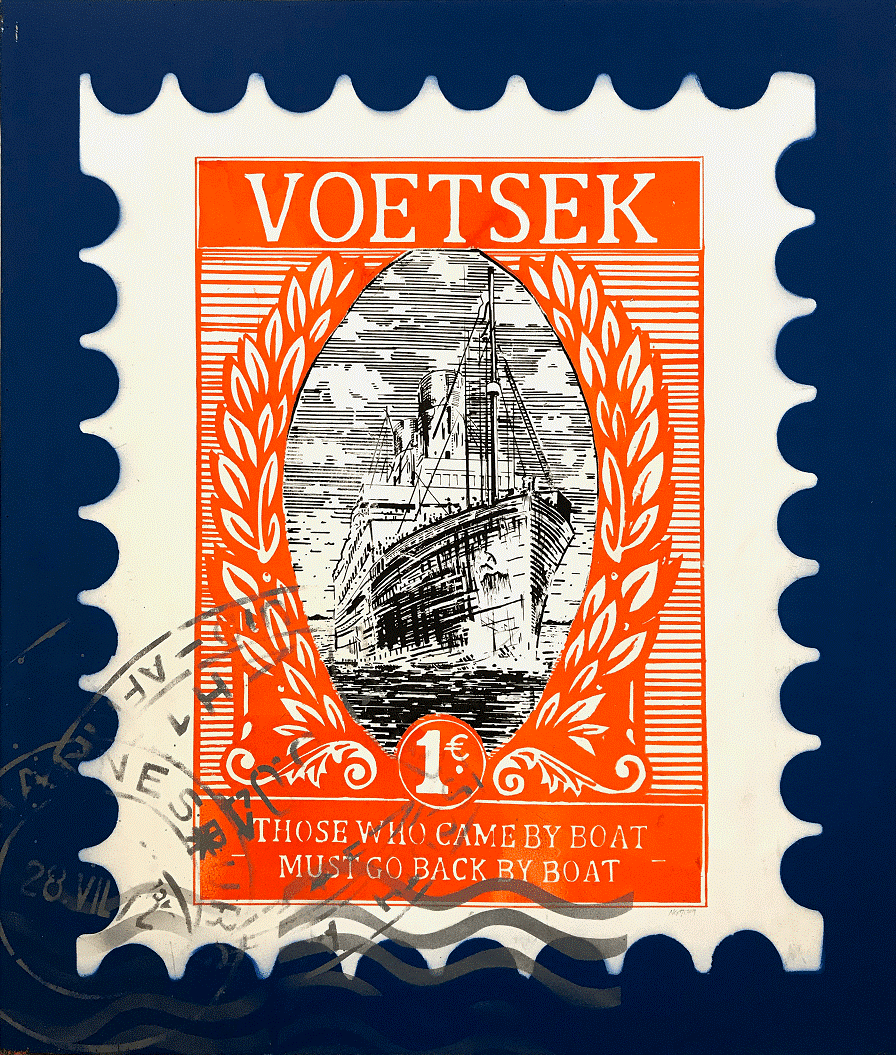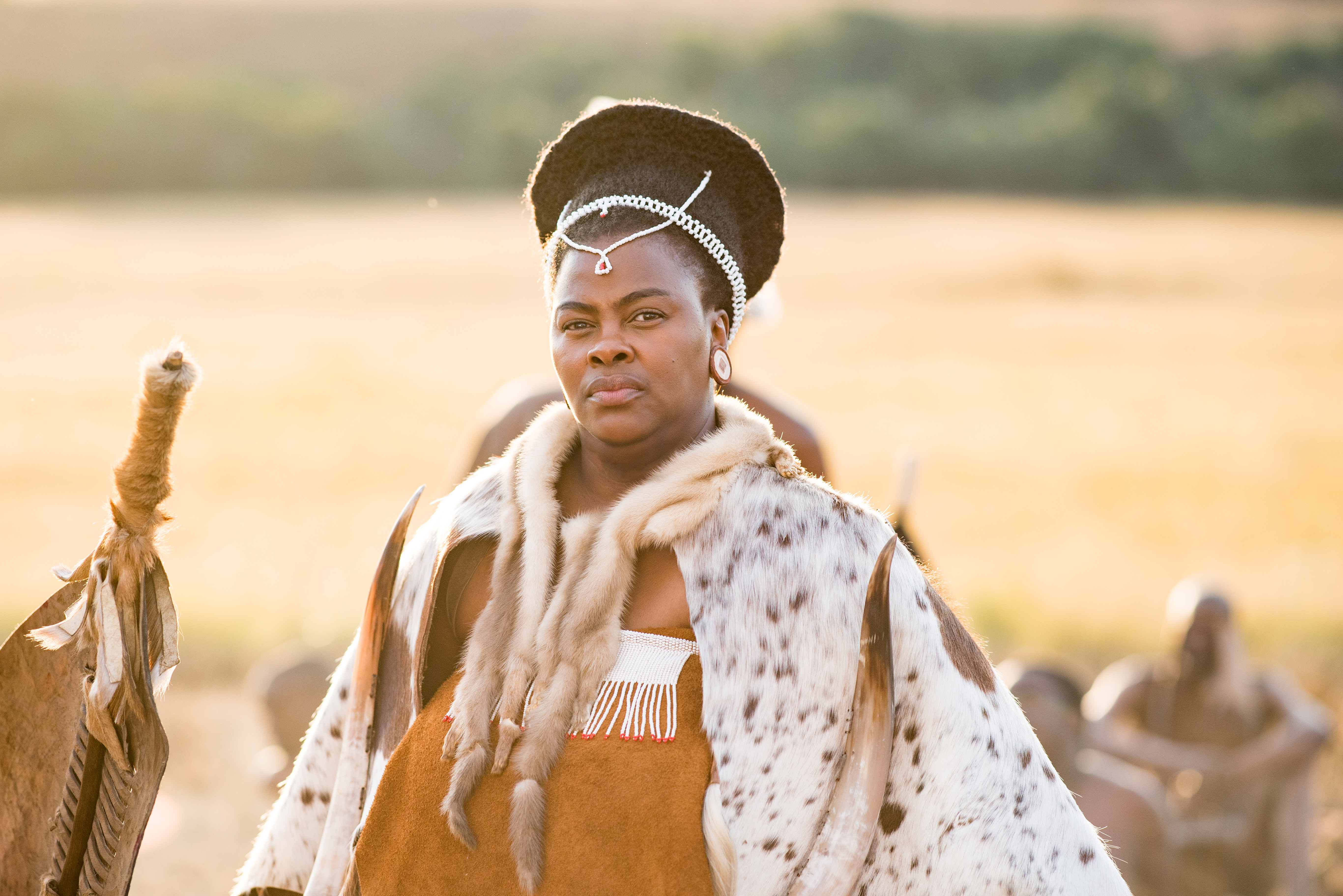‘You called?' I say on the phone the minute this woman picks up the phone on the other end of the receiver. I have just seen two missed calls on my phone. 'Yewena! No greetings. No how are yous?! Just this (you called) bullshit?! What's wrong with you?!' My dear friend acts livid, and I laugh it off by asking her what she wants. 'Mama ka Frisky maarn, there is a ntwaso this weekend. Are you coming?'
Another ntwaso coming. How many ntwaso ceremonies have I attended in my life! I am exhausted. I am not looking forward to anymore, I tell her. Imbuzi ikhalaphi; that's me. I am ‘imbuzi ikhalaphi’! I must truly stop being imbuzi ikhalaphi. Her mother said that to me the last time, and explained what it meant. In the literal sense, an ‘imbuzi ikhala kuphi’ is a person crying out for spiritual awakening, to the extent that they devote each weekend to attending any ancestral ceremony that features a goat sacrifice.
What is that thing Bab’ uCredo speaks about in his book again, about goats and ceremonies? Oh yes, I remember it now. He says goats are representative animals, that let out our cries in the spiritual world. Thus, a goat is slaughtered on our behalf. I have become imbuzi ikhala kuphi because each week ending, I check the gig guide on whose pain is being let out by the slaughter of the poor goat, which must endure our suffering and send the message to our ancestors, to tell them of our pain as the indigenous children of the south.
This time when my friend specifically invites me to yet another ntwaso, I am reluctant. I am just exhausted by the whole thing. It has become too predictable for me. They awaken idlozi, they dance, dance, dance, then they dance again with half-awoken spirit, or no spirit has awoken at all. We drink and drink, and start eyeing other queer sangomas who think we are cute and fresh, and then we get a kiss (if we are lucky) then exchange numbers. I let her know I am not going.
Of course, she does not relent, even though she is also not excited about it. But we must go because this one is different. This one has order. It is special to her because her new poly lover has a thwasa that is completing her journey. I am not excited much, even though I have never attended umgidi Ekurhuleni, where I spent my teen years. Deep down, I now yearn to be emgidini wamaBhaca, my people that I am in touch with. I long to see how people back home do it. Perhaps that is why I have become mbuzi ikhalaphi.
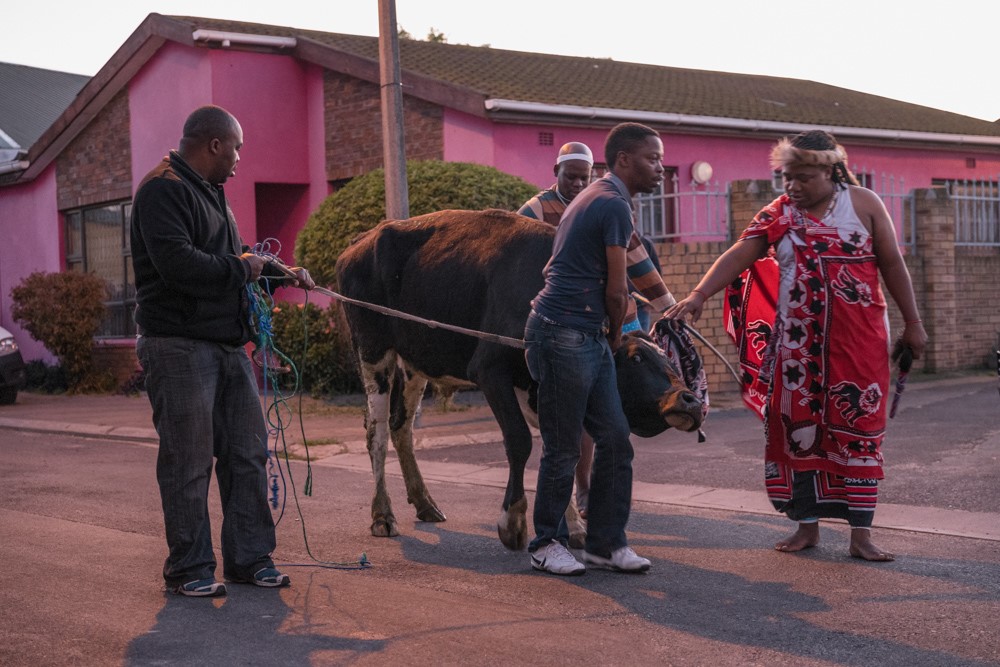
I am even more reluctant to go after she tells me that the same thwasa got her thwasa-mate in the ICU, by uttering hard words that were too bitter to be swallowed. I am over with the drama that happens ephehlweni. I am too exhausted by the vile things that happen during initiation. About the competition of amathwasa, about slavery there, about the half-truths and ignorance of the mentors. I also tell her that these are the same reasons why I am postponing my own journey ye ntwaso.
My friend and I share the same bitter misgivings about ubungoma lately. She is fortunate because she went through her initiation a long time ago. Three years is a long time, especially when you have further been knighted to also train other initiates, ushering them into becoming izangoma. We get along because we neither defend it nor bash it. We understand its fundamental purpose and accept that it has been corrupted.
She dislikes mostly the arrogance of those who are izangoma, as well as for the materialism that has crept into the practice. The price tags and capitalist status-obsession from izinyanga are repulsive. I too have seen it. It is a secret society of gifted and non-gifted people who look down on those within its ranks that still live in poverty. My friend says healing the sick does not necessarily mean one is bound to become famous and/or wealthy from it.
I on the other hand have come to dread the traditional healing community for its shallowness. I hate what has become of it. I hate that so much is overlooked, whilst dance, attire and 'thokoza gogo' are turned into the epitome of what it means to be a healer. I am even colder towards it because the people in it lack a conscious awareness of the world around us. You are lucky to find a sangoma that is both spiritually and politically alert to the forces that control the world.
In the end, I surrender to my friend’s invitation. I tell her I am only going this time because I want to be supportive of her endeavours with the new tryst, 'but this is the last time I am going, Aquatic. I swear it is the last time. I'm really over this'. Deep down I know I am lying. I know that it won’t even be a month of holding out, before my resolve breaks. She knows it too. After all, I am mbuzi ikhalaphi and, until I silence this screaming goat, I will forever be looking for where they are letting out the cry.
My father, mother, and her mother burdened me with this baggage of spiritual thirst. My father’s inclination to ingulo has fallen to me since he chose to only answer to the calls of alcoholism and promiscuity. I am continually reminded that people were so jealous of his gift that they stopped him from going underwater when two strikes of lightning got him back to his senses and prevented him from entering the overpowering water. Surely there are loopholes to this story. Firstly, how did he just regain consciousness, while being led by a water spirit that was meant to heal his agony? Second, how can a spirit greater than his fears allow him to return to himself when they had finally won in convincing him that this was indeed his destiny? I think the final loophole in this tale, that I am forever told by his sister, lies in the fact that my father told his family this upon his return: making them secondary witnesses who can't be relied upon as witnesses to what happened, to discourage him so much about ubungoma. Just like Jesus' tale of walking on water, I am sceptical about this tale. And he is a couple of decades too late to balance it for me for himself.
Although no one talks about my mother being a gifted child, the dislike towards her often goes into recounting her negative traits, while the genius side remains in the shadows. My family members have tales of how naive and churchy she was, overlooking the spiritual thirst that pulled her from church to church, trying to uplift her frail spirit. Unlike my father, the waterman, her spirit troubled her by needing church all the time; to a point where she once left her household and moved in etronini; to stay in church with fellow spiritually-thirsty apostles of Saint John of Masango. She commuted every day, to and from work, whilst uplifting her spirit that never got the goat it wanted. Maybe she was an isgubhu sikhalaphi, in contrast to me being the imbuzi ikhalaphi sect. She is also a decade too late to explain it for herself.
My grandmother’s ancestral call was corrupted by her father and husband, who had converted to the ways of the missionary Roman Catholics. The latter refused to understand the ways of the so-called heathens, though they tolerated them just enough to keep them attending and tithing. She tells me they called a seer for her, who performed a ceremony so that they could rid her of the curse of becoming a 'witchdoctor'. For a while, she says her dreams were shut down, and so she was convinced that the goat would no longer scream. But as the years of menopause found her, the goat started screaming once more; wanting her to finish what was bestowed upon her. Like her daughter, she turned to the same church of the apostles, to numb it down. Of late she tells me that she is too old to pursue it now and that it rests upon me to fulfill it. What laziness! Ironically, she is scared for me too, and rather thinks it is psychiatric help that I need.
Most intwaso ceremonies last for three days, beginning on a Friday and ending somewhere in the afternoon or evening of the Sunday. Impande, or the home ground of the sect, dictates how you ought to govern within that sect you have been chosen to thwasa and grow in.
'Listen I am not excited about this one neh. I am just glad to be out,' I say to my friend Aquatic, two days before the event.
'Yeah I get that. So which day do you propose we go on?' We are both interns in a lousy production house that never really gets to do any of the projects we plan. 'Let's go on a Saturday this time. Saturdays are boss bra.'
'Actually, Fridays are boss Ma. Everything happens on a Friday. And you get to please your soul through the music, with little corruption happening around.'
'Well, but not so many people will turn up on a Friday during this Corona. Plus, where will we sleep? And you want us to idle around the yard the entire morning, dirty, hungry, hungover and just out of things to do, till it is the afternoon again? Come on, let’s go on Saturday.'
'Okay, Frisky you win. I'm not feeling it anyway.'
'Nah fam. We must go. You've convinced me to, and I have convinced my mind to.'
This time around, on the day there are four of us. Me, her, our other friend Fresh Prince, and Aquatic's girlfriend. I have attended so many ntwasos in the past two years that I have even lost count. The first sangoma ceremony I ever attended was when I was twelve years old. That was by default of course because it was at my aunt’s and therefore took place at home. My paternal grandmother was still alive then, and she remarked that I kept dribbling my legs like a horse while the drum was beating. They made fun of me for a week.
I did not attend another ceremony after that, up until I befriended Aquatic and Nkosi Yolwandle two years ago, in another internship. They are both izangoma, and friends of mine. We met on the first day of the internship because being smokers gave us a common bond. Apart from borrowing a lighter, I initially stayed as far away as possible from them, because the same dislike I have towards sangomas oozed out from them. At that time, I was knee-deep in my Master's research about traditional healing, and its portrayal and genre classification on TV. This means I had to stretch my book knowledge to match the actuality and practice, beyond the feel-good academic narrative. Already, the glorification I had had when I started with the research three years prior was starting to wear off. Thus, my little enthusiasm about being in spaces with izangoma. It would be late in the following year that I would eventually become close to these two dear friends.
I was fresh from a seven-year stay in Cape Town, where the hub of spirituality is unrestricted and diverse. There too, I had spent time being a different version of mbuzi ikhalaphi; by attending spiritually-inclined concerts and rasta festivals, in attempts to silence my goat. So the first time I got an invite to a sangoma ceremony, I was thrilled. This was now almost six months into the twelve-month internship, and Aquatic had quit to go and do yet another initiation for isthunywa, as she was already isangoma samaNdawe. This particular event was amanono.
I laugh at this significant experience each time I think about it because it has laid the foundation for so many of the things in my life. Before it, I thought I had read about ubungoma enough to figure out how and what it is. We had gone there to primarily archive the entire ceremony, to develop a documentary series about healing. To date, the footage lies unedited in someone’s laptop.
So many of my relations, which have shaped and paved new ways of understanding myself, begin from that day. New friends and spiritual children, with the same skepticism as me, were also cultivated on that day. Aquatic and I trace our sisterhood from that day as well. Mathambo, who is a dear lover and a gem to me, was found in that ceremony. That is the nicest thing about being umaNkingani: you are bound to meet your tribe which suffers from the same mental illness as you, yet not lucky enough to find a spiritual home to thwasa and grow in. We are called umankingane mainly because we battle with our callings in the subtlest and severe ways, yet we are unable (or not willing to submit to) ukuthwasa, whilst our lives remain unstable and miserable.
With the ceremony I went to this weekend, I am now allowing myself an opinion to realise that choice is something that exists. This is to say, some sangomas will choose fame and fortune over healing, while some will opt to allow purpose to lead them; no matter the tribulations the path may set before them. The choice I am referring to also alludes to the fact that you either choose to remain umaNkingani a.k.a imbuzi ikhala kuphi, or you stretch to do something about the call by being interested in knowing why the goat is screaming. This is about the choice of wanting to understand how the goat can be silenced, and then finally doing something to get it quiet… Otherwise, it will continue to trouble generation after generation.
As I return to university to resume my research on this particular subject, I am very alert and thankful for the experiences that have brought me to this significant moment of choosing.

